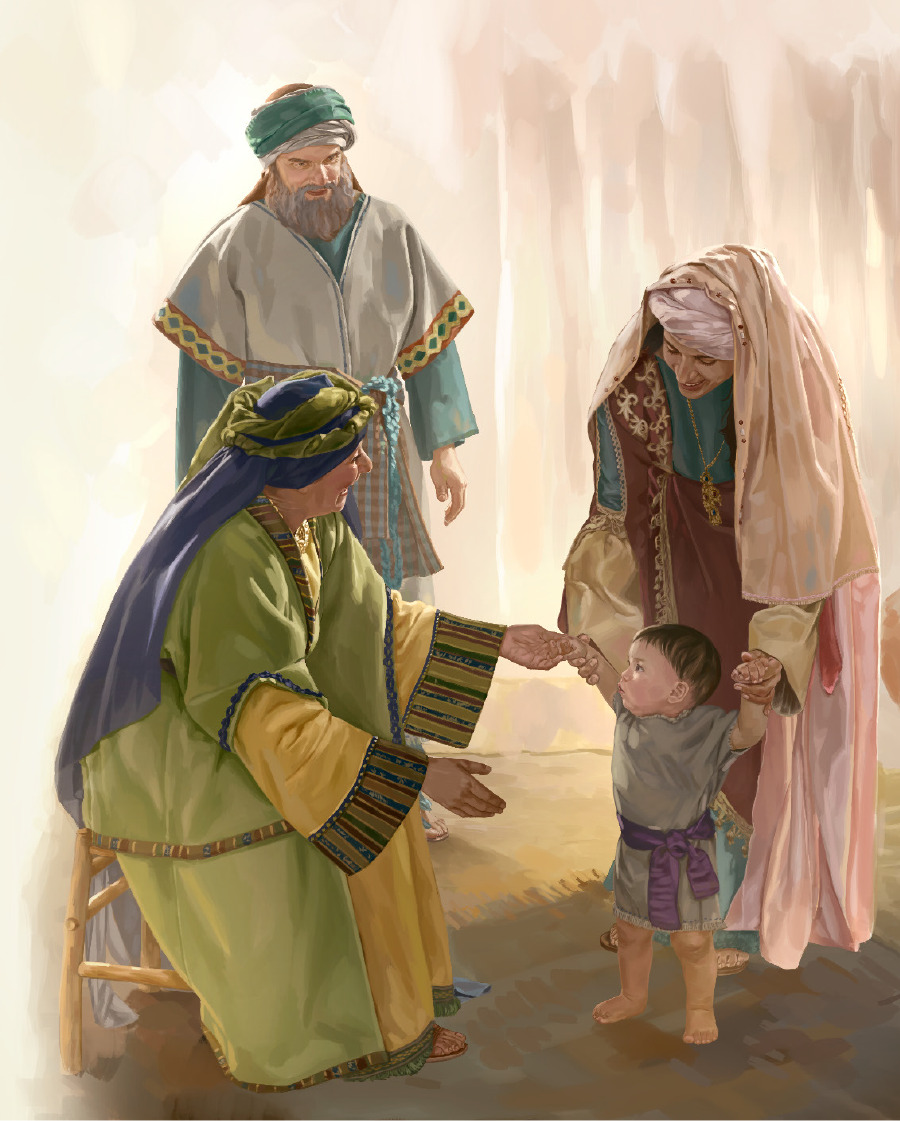
Click to Listen - Audio
Within a few weeks, we will be ending and beginning another year and another decade. Winding down, cleaning up, planning forward, and reviewing the past are natural parts that play in our lives during these times. For some of us, life has been fairly easy. We happily look back while being hopeful for the future.
Yet, many of us, though, feel like we’ve been drinking out of a bottomless shake blended with the bitter thorns and thistles that God promised Adam and Eve. We may wonder why we keep hitting the red lights while our family, friends, and neighbors seem to drive smoothly through an endless stream of green ones. Instead of the word “new” implying better, we know all too well that it could mean a lot worse.
With this in mind, my message to you and to me is that God wants for us glad tidings, good news, and happy endings. God told us through Ezekiel and Ecclesiastes that “I will do better unto you than at your beginnings” (Eze. 36:11) and “better is the end of a thing than the beginning” (Ecc. 7:8). When God stopped Job’s sufferings, the scriptures tell us that “the Lord blessed the latter end of Job more than his beginning” (Job 42:12).
When we first meet Alma the Younger, Mormon describes him as a “very wicked man” (Msh 27:8). Mormon also gave that specific ignominious description to only two other individuals: Zoram, the Zoramite chief ruler who turned away the poor (Alma 35:8) and Amalickiah who started the long-protracted war in the Book of Alma (Alma 46:9).
Now, we like to think of Alma being very young, possibly a wayward teenager. However, considering that at the age of 82, Alma the Elder passed away not long after his son’s conversion, it’s more likely that Alma the Younger was in his 40’s when he changed his life. Up to that point, we can imagine that Alma the Elder, having known well the stories of Lehi, Laman, and Lemuel, may have seen the future for his namesake son to be a bleak one with not a great ending to it.
Since God is focused on the “latter end,” He was neither going to forget nor forsake him or his son. By sending an angel, Heavenly Father gave hope to a father that through His Only Begotten Son that Alma’s son could have a happier, better ending. His repentance was so thorough that he later wanted to be an angel himself to “go forth and speak with the trump of God, with a voice to shake the earth, and cry repentance unto every people… that there might not be more sorrow upon all the face of the earth.” (Alma 29:1-2). It appears that God may have granted him his wish after all at the end. Mormon tells us—
And when Alma had done this, he departed out of the land of Zarahemla, as if to go into the land of Melek. And it came to pass that he was never heard of more; as to his death or burial we know not of.
Behold, this we know, that he was a righteous man; and the saying went abroad in the church that he was taken up by the Spirit, or buried by the hand of the Lord, even as Moses. But behold, the scriptures saith the Lord took Moses unto himself; and we suppose that he has also received Alma in the spirit, unto himself; therefore, for this cause we know nothing concerning his death and burial. (Alma 45:18-19).
Whether Alma became an angel is less important than the Atonement of Christ’s impact on changing him from a very wicked man to a righteous, “holy,” “chosen man of God” at the end (Alma 10:7).
At the beginning of the book of Ruth, we learn of Naomi. Because of a great famine in the land, she lost her husband and her only children: two sons. As she was about to head to her home country, Bethlehem, she tells both of her daughters-in-law:
Go, return each to her mother’s house: the Lord deal kindly with you, as ye have dealt with the dead, and with me.
Since she was unable to provide them spouses, she insisted that they leave so that they could find new husbands, new homes, and new lives. She also depressingly shared that she felt forsaken by God. “For it grieveth me much for your sakes that the hand of the Lord is gone out against me” (Ruth 1:13).
Upon hearing her words, one left and Ruth remained. Ruth declared to Naomi—
Entreat me not to leave thee, or to return from following after thee: for whither thou goest, I will go; and where thou lodgest, I will lodge: thy people shall be my people, and thy God my God:
Where thou diest, will I die, and there will I be buried.
(Ruth 1:16-17).
Seeing Ruth’s insistence on following her, Naomi allowed her to join. When they arrived in Bethlehem, the people seeing the condition Naomi was in, incredulously asked “Is this Naomi?” or in other biblical translations “Can this really be Naomi?”
Naomi’s response tells how hopeless she felt about her life and how abandoned she felt by God—
Call me not Naomi,…for the Almighty hath dealt very bitterly with me.
I went out full, and the Lord hath brought me home again empty: why then call ye me Naomi, seeing the Lord hath testified against me, and the Almighty hath afflicted me? (v. 20-21).
Now if this was the end of Naomi’s story, it would be pathetically sad. However, it’s not the end. It’s just the beginning. God really likes happy endings.
When Naomi learns of Ruth’s experience with her relative Boaz, she shares the glimmer of hope that she begins to feel, “Blessed be he of the Lord, who hath not left off his kindness to the living and to the dead.” (Ruth 2:20). After Ruth marries him and gives birth to her grandson in Bethlehem, the women of the city declare—
Naomi, Blessed be the Lord, which hath not left thee this day without a kinsman, that his name may be famous in Israel.
And he shall be unto thee a restorer of thy life, and a nourisher of thine old age: for thy daughter in law, which loveth thee, which is better to thee than seven sons, hath born him.
The scriptures then say that, “Naomi took the child, and laid it in her bosom, and became nurse unto it.”
This grandson, Obed, born of Ruth, a Jewish convert and Boaz, the son of Rahab, the penitent Jericho harlot, not only was King David’s grandfather, but he also became the forefather to another special child born in Bethlehem, even the Son of God.
I imagine that Naomi, who once felt forsaken by God, gladly participating with the wonderful angelic hosts praising Him to the humble shepherds, “Glory to God in the highest, and on earth peace, good will toward men.”
President Hinckley once shared a story about a struggling young missionary about to head home early. He said that he called the missionary’s home bishop to tell him that the elder was “failing” and was “determined to come home.” President Hinckley told the bishop that “the mission president had done all he could with him.”
What was the bishop to do? He could wait for the missionary to come home to counsel him. He chose a different ministering path one that changed that elder’s ending. President Hinckley goes on to say—
The bishop at his own expense in time and money went to the place where the young man was laboring. He talked with him. He cried with him. He prayed with him and blessed him. And then he went out and worked with him. The missionary was saved. He finished honorably. All of his future life will be blessed by reason of the love and kindness of a great bishop (“Keep the Chain Unbroken,” President Gordon B Hinckley, BYU Devotional, November 30, 1999).
As we prepare for the Christmas season to celebrate Christ, let us remember that His coming is all about glad tidings, good news, and happy endings. As our High Priest of good things to come, His hand is stretched out all day long to save and support us. As He sent an angel to Alma, as He sent Ruth and Boaz to Naomi, as He sent the bishop to the missionary, He has sent and will send seen and unseen angels to minister to us so that we can with a “surety hope for a better world” in this life and in the life to come. He never leaves us alone. He will make our endings eventually better than our beginnings. This is my prayer for you and for me.
